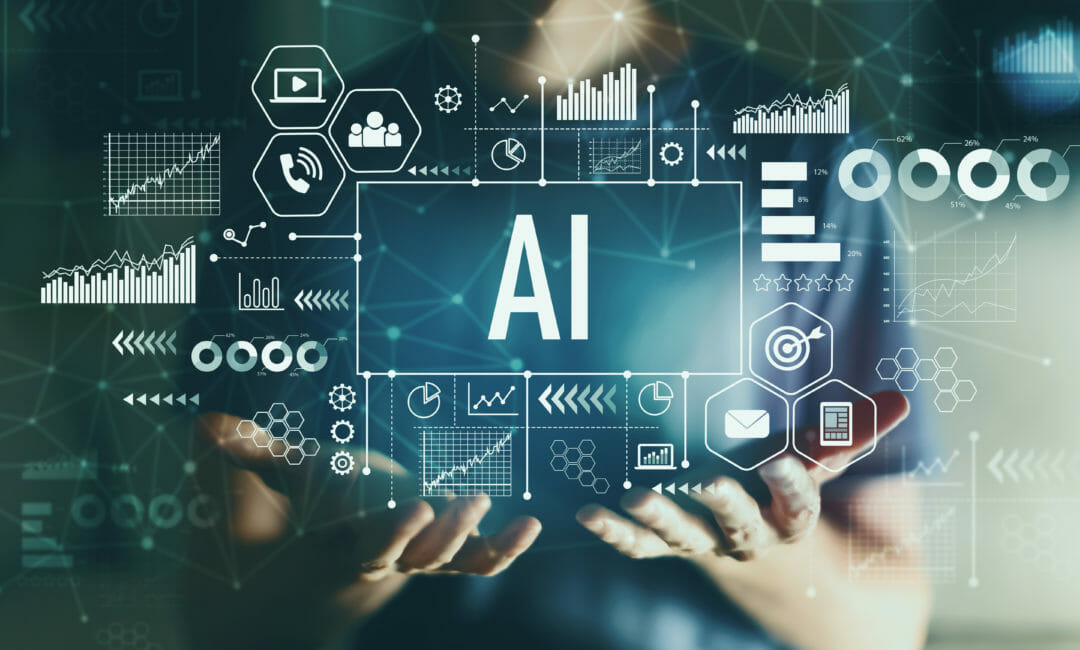AI and automation are expected to drive the biggest business and societal changes over the next decade. It is predicted that AI could contribute up to $15.7 trillion to GDP by 2030. The speed of innovation and scale of disruption and AI’s sizeable economic impact will render businesses ignorant to its opportunities obsolete. With 60% of leaders indicating that their organisations lack the sensory and innovative processes to respond to rapid disruption, many could be at risk due to the impact of automation and AI.
Business leaders are always at the forefront of transformation. Therefore, developing leaders primed to keep up with the sheer speed of innovation and make quick, informed investment decisions in technology will be key to organisational success. Digital is fundamental to daily business operations and organisational progress, therefore all leaders – not just the chief technology and chief digital officers – need to develop a set of de facto skills and behaviours.
Understanding digital business models
AI and automation is still far from realising its full potential, yet with improved data handling, enhanced computer capabilities and advanced algorithms, we are seeing rapid technological progress which will disrupt our workplaces. As much as AI has the potential to improve customer engagement, increase efficiency and reduce costs, it also introduces new threats and challenges existing working practices.
All senior leaders must understand the digital ecosystem, how the digital economy works and how digital tools like AI and automation can disrupt their current business models. This ensures organisations can exploit new technology for business benefit and remain competitive.
Leading through uncertainty: 7 characteristics of highly successful digital leaders
Agile working
Often associated with the technology function, an agile way of working is both a culture and a mindset enabling cross-functional collaboration to collectively solve problems. Whilst leaders may not want to engage in the minutiae of retrospectives and stand-ups, the agile mindset drives a culture of rapid adoption of change, better customer experiences and a reduced time to market. Agility also drives improved product quality, greater stakeholder engagement and collective performance, yet without traditional organisational and people management structures in place, it can lead to talented employees outgrowing the business.
The most successful and effective leaders have experience of both agile cultures and more structured organisations. These leaders can focus on finding a healthy tension between moving at pace and still ensuring processes are there to manage risk and delivery.
Technological curiosity
Cultivating a natural curiosity will drive leaders to explore new developments and the practical business applications they have. Not only will this prepare leaders for change, ensuring they are not blindsided by technological disruption, but it will develop leaders who actively seek ways to improve processes and operations. Equally, it ensures they are not distracted by “shiny new toys” and automate processes for the sake of it. This summer’s A-level grading debacle shows that it can be damaging to replace human-led operations with algorithms without first appreciating the process’s complexities and nuances. Likewise, investing in technology without planning how it will support the business, will make it a source of future technical debt.
Managing enterprise security debt with the rise of IoT
As well as business opportunities, leaders must be aware of the threats that AI and automation poses. With regards to cyber security, further data management and protective legislation will emerge and could have huge implications for organisational governance. Following best practice early on will ease team transition to new processes and avoid a last-minute scramble to meet deadlines.
Managing changing job roles and skills
By 2030, it is predicted that more than 10 million UK workers could be under-skilled in digital, decision making and communication. At current estimates, the digital skills deficit could be costing the UK as much as £63 billion a year. Additionally, 58% of UK adults are already worried that automation is putting their jobs at risk, meaning organisations will need to reassure staff and bridge a gap between emerging technologies and workers capable of using them.
Rather than eliminate job prospects, AI will create new roles and require new skills, subsequently altering business structures and driving upskilling. Successful business leaders see AI as a tool for scaling business operations. Data can be used to plot customer journeys to identify key touch points for automation. Using AI to anticipate customer needs enables your sales team to focus on complex requests and building human relationships – serving more customers and providing a better experience.
Exploring the growing use of IT in B2B customer experience projects
Investment in learning
It is not always possible to predict the nature of the next disruptive event – Covid-19 has certainly proved that – making it difficult to anticipate what specialist knowledge will be needed to successfully navigate future transformation.
While STEM skills will be important for technology roles, soft leadership skills and behaviours that support a change-led culture will prepare businesses for disruption and rapid transformation. Emotional intelligence (EQ) is invaluable when it comes to collaboration and team management, but also when communicating with stakeholders to share updates and secure project buy-in. Businesses should also give individuals the space to learn, cultivating an environment that enables them to explore new technologies without fear of failure.








